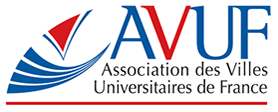
 Where do things stand in 2016?
Where do things stand in 2016?
Corporate learning is the biggest force in the French industry. Higher education trails behind at 20%.
B2B is the main marketing model for startups at all levels of the education system. This is true for 74% of EdTech organizations in higher education. With B2B, startups can reach a critical mass of users via just a few schools. It's also easier to market to schools than to students.
The mobile revolution hasn't hit this market yet. Work computers dominate corporate learning and BYOD isn't always an option in the equal opportunity world of education. As a result, French EdTech is heavily web oriented.
How is French EdTech doing?
Around a dozen French startups have been founded every year since 2005. More and more schools have dedicated digital teams. New initiatives like CRI's EdTech Master's degree and success stories like CrossKnowledge are cropping up.
So why is growth a challenge?
Only 9% of the 350 or so French EdTech startups have raised funds. Of those that work on corporate learning, 50% have over 20 employees, in contrast with 8% of higher education startups.
The sector is under-funded and French education investment funds are lacking. According to Svenia Busson and Audrey Jarre of the EdTech World Tour, EdTech flourishes in countries where startups are supported by investment funds or are given a media boost by outlets like EdSurge.
You also blame universities.
Universities, unlike companies, are slow to make decisions. The absence of dedicated staff also stymies innovation efforts.
What about the American market?
With just 4.5 times more students on its market, the American EdTech sector organized 49 times more fundraising campaigns than its French counterpart in 2015. The French ecosystem still has a ways to go.
Any leads?
Both funding and international collaboration are essential. French EdTech organizations need to increase their visibility, meet and compete. Every year, England and Chile send 50 or so contestants to the Global EdTech Startups Awards but France only sends 13. In this fast-growing industry, invisibility is deadly.






